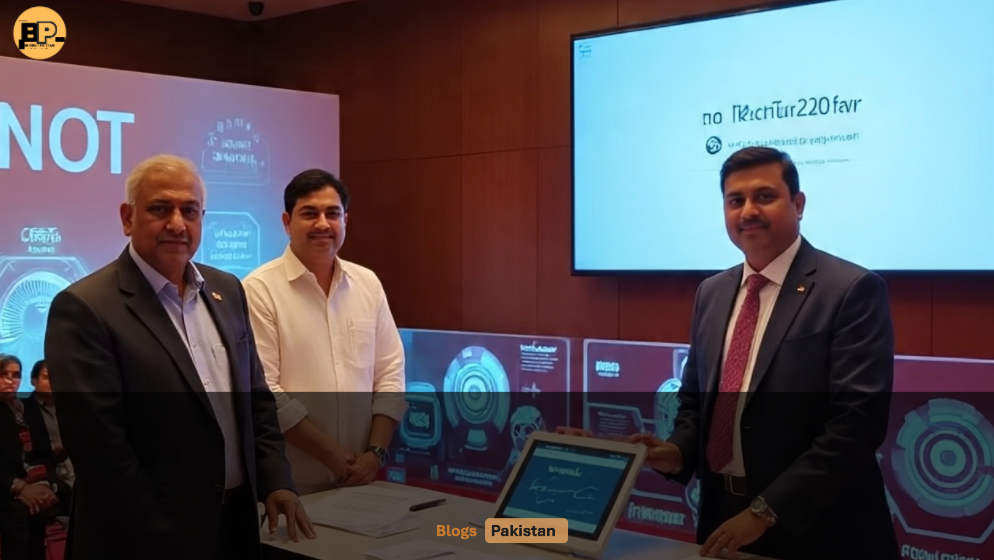NCERT : In a digital world where your refrigerator might be smarter than your neighbor, cybersecurity is no longer a luxury—it’s a necessity. And Pakistan just made a major move on this front! The National Cyber Emergency Response Team (NCERT)—no, not the Indian textbook board, but Pakistan’s own digital guardians—has officially teamed up with Tech20four (Pvt Ltd) to give cyber-villains a run for their money.
Yes, you read that right. NCERT has welcomed Tech20four as its Technology Innovation Partner under the much-hyped Cyber Innovation Ecosystem (CIE). This alliance aims to combine brainpower, bytes, and bravery to beef up national cyber defenses.
Let’s break it down (not your firewall though).
What’s Cooking in Islamabad?
This high-stakes collaboration was made official with a Memorandum of Understanding (MoU) signed at the NCERT headquarters in Islamabad. The event wasn’t just another dull formality. It was more like Pakistan’s version of the Avengers assembling—except the capes were replaced by lanyards and cybersecurity frameworks.
Representing NCERT were top cyber commanders like Mr. Khurram Javed (Director Capacity Building), Mr. Sadiq Khan (Deputy Director Labs), and other digital warriors. From Tech20four, the man leading the charge was Mr. Aamir Nawaz Tanoli, CEO and proud torchbearer of tech innovation in Pakistan.
Also making a special guest appearance—Cywift, another innovative player on the cybersecurity stage.
Why Should You Care?
Now, you might be thinking, “That’s great, but I just want my Netflix to buffer less.” Fair point. But here’s the thing—cybersecurity isn’t just about stopping hackers from stealing classified files. It’s also about protecting your online banking, social media accounts, health data, and yes, even your binge-watching habits.
And this NCERT–Tech20four alliance is not just any collaboration. It’s a blueprint for a digital fortress—crafted right here in Pakistan.
Cyber Innovation Ecosystem (CIE): The Secret Sauce
Think of the CIE as a tech-powered neighborhood watch. It brings together:
- Government bodies
- SECP-registered private firms
- Universities and academics
- Independent innovators
All of them united by one goal: outsmart the cybercriminals and build homegrown cybersecurity solutions.
No more blindly copying Western tools that don’t really understand local needs. The CIE wants Pakistan to develop its own digital defense systems, tailor-made for our infrastructure, data challenges, and yes, the chai-sipping office culture.
Tech20four’s Role: More Than Just Cool Name
As the Technology Innovation Partner, Tech20four will:
- Co-develop advanced cybersecurity tech with NCERT
- Share expertise and insights across domains
- Conduct research to predict and prevent cyber-attacks
- Train the next generation of cyber ninjas (not literally, but you get the drift)
Dr. Mehreen Afzal, Director of Governance, Risk, and Compliance (GRC), summed it up perfectly. She called such partnerships “the backbone of a secure national framework”—and we couldn’t agree more. Especially when ransomware is lurking around like a nosy neighbor.
NCERT: No, Not Your School Books
Let’s clear up some confusion here. If you Googled NCERT and landed on Indian textbooks about trigonometry, take a step back. This NCERT stands for National Cyber Emergency Response Team, Pakistan’s premier body for cyber defense.
Their job? To monitor threats, respond to incidents, and build resilience in the country’s IT ecosystem. In short, they’re the digital firefighters you call when things go haywire.
What This Means for Pakistan (and India, Take Notes)
Pakistan’s digital landscape is growing faster than you can say “2FA.” From mobile banking to digital IDs, everything is going online. But with great internet speed comes great vulnerability.
That’s why this partnership is a huge deal. It signals that Pakistan is no longer playing defense. We’re stepping up, innovating, and preparing not just to respond to cyber threats—but to outsmart them before they begin.
And for our friends across the border in India, this collaboration serves as a solid case study. Cybersecurity isn’t just about investing in firewalls—it’s about fostering ecosystems, building talent, and encouraging local innovation.
So…What’s Next?
Don’t expect flashy robots or dramatic hacker takedowns just yet. But over the coming months, you can expect:
- More cybersecurity training programs across universities and institutions
- Development of homegrown tools to secure data
- Policy recommendations for better cyber hygiene
- Joint research papers, seminars, and expert panels
This is just the beginning of what looks like a game-changing journey.
Final Thoughts: Who Knew MoUs Could Be So Cool?
Sure, on paper, an MoU doesn’t sound thrilling. But when you dig into what this partnership aims to achieve—a digitally secure Pakistan—it becomes clear: this is a milestone.
The days of copy-pasting foreign solutions are fading. Pakistan is beginning to write its own cybersecurity playbook—and thanks to NCERT and Tech20four, the first chapter looks promising.










